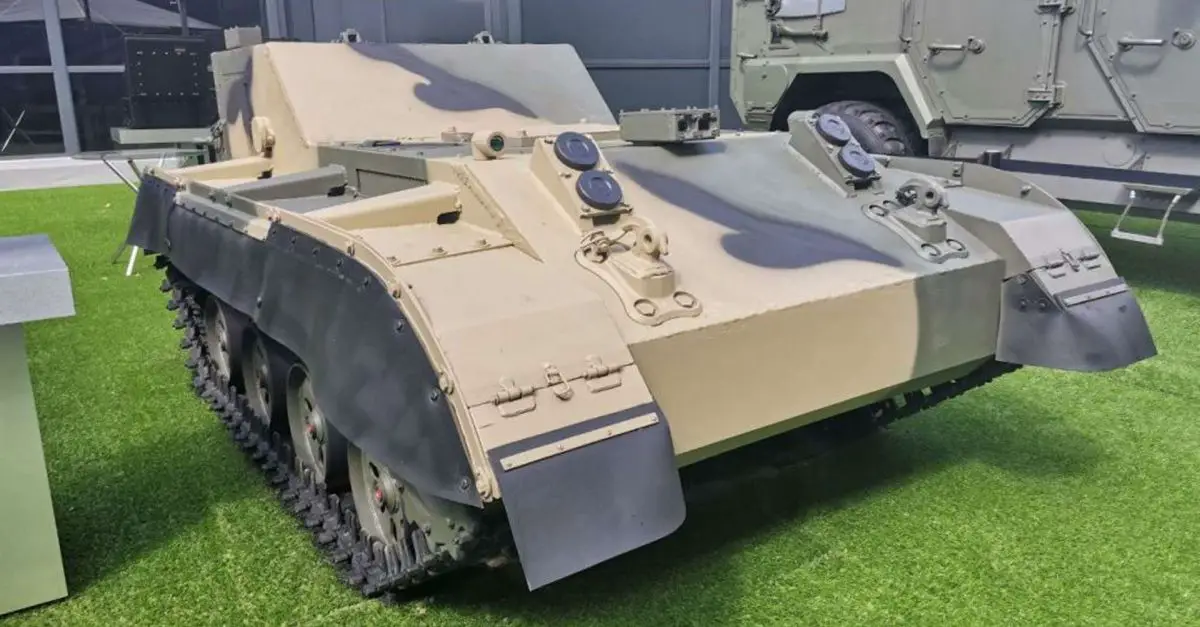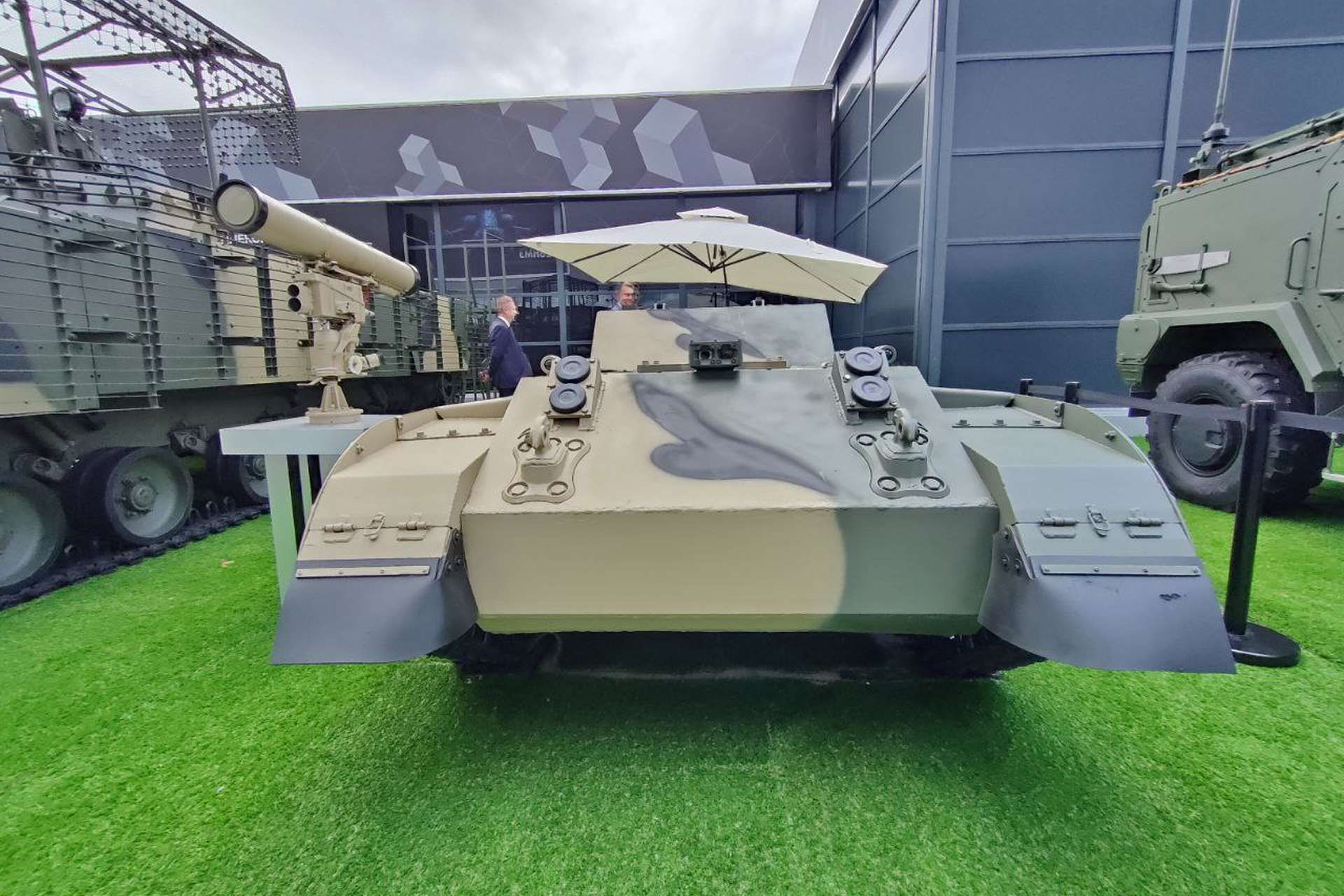Breaking News
Russia presents Karakal UGV to deploy smoke screens at Army 2024.
At the Army-2024 exhibition, Rostec introduced the Karakal unmanned ground vehicle (UGV), a new development within Russia's military robotics sector. This light-class robotic platform, developed by Kurganmashzavod, a subsidiary of the High-Precision Systems holding within Rostec, is designed to perform a variety of tasks in diverse operational environments. The platform is adaptable, allowing for the installation of different tools and equipment based on operational requirements.
Follow Army Recognition on Google News at this link

Bekkhan Ozdoyev, the industrial director of the arms cluster at Rostec, noted that the Karakal's universal platform is particularly relevant in urban environments, where traditional military equipment may face limitations due to space constraints and the need for enhanced maneuverability. (Picture source: Russian social media)
Bekkhan Ozdoyev, a member of the bureau of the Union of Mechanical Engineers of Russia and the industrial director of the arms cluster at Rostec, noted that the Karakal's universal platform is a key feature, enabling it to be tailored for a wide range of tasks. This adaptability is particularly relevant in urban environments, where traditional military equipment may face limitations due to space constraints and the need for enhanced maneuverability. Ozdoyev also highlighted the robot's compact and agile design, which supports its use in environments that are challenging for conventional equipment.
The Karakal has a load-carrying capacity exceeding 500 kilograms and is equipped with a remote control system (RTK-L). This system includes multiple cameras, a thermal imager, a navigation system, and a noise-proof radio transmitter, providing an operational range of up to 150 kilometers. The robot can be controlled from a distance of up to two kilometers, including in nighttime conditions, thereby expanding its potential applications.
During the Army-2024 forum, the Karakal's design was demonstrated, showcasing its four-support tracked chassis, which contributes to its stability and mobility across various terrains. The platform is also fitted with four grenade launchers capable of deploying aerosol smoke screens, offering a level of protection suited to its operational class.

At the Army-2024 forum, the Karakal's platform is also fitted with four grenade launchers capable of deploying aerosol smoke screens, offering a level of protection suited to its operational class. (Picture source: Russian social media)
The introduction of the Karakal at the Army-2024 forum is part of a broader effort by Rostec to develop a range of unmanned systems, including ground drones and remote mine clearance vehicles. As demand for such systems grows within military and industrial sectors, developments like the Karakal reflect Russia's focus on advancing its capabilities in this area, particularly in creating platforms that can operate in a wide range of conditions.
The Army-2024 International Military-Technical Forum, held at Patriot Park near Moscow, also featured various drones, including the Lancet-E, the Grom-U, and the Iranian Mohajer-10. However, Russia's drone industry faces challenges, particularly due to Western sanctions that have disrupted supply chains, complicating domestic production of necessary components. This has resulted in a continued reliance on imported technology and foreign-made drones to maintain UAV capabilities, a reliance that has become more apparent in the context of the ongoing conflict in Ukraine, where the demand for drones has increased.
In response to these challenges, Russia has increased its training efforts, planning to expand the number of training centers for UAV operators from 16 in 2022 to 139 in the coming years. Despite these efforts, integrating drones into cohesive operational strategies remains a challenge, particularly in ensuring these systems operate effectively alongside other military assets.


























